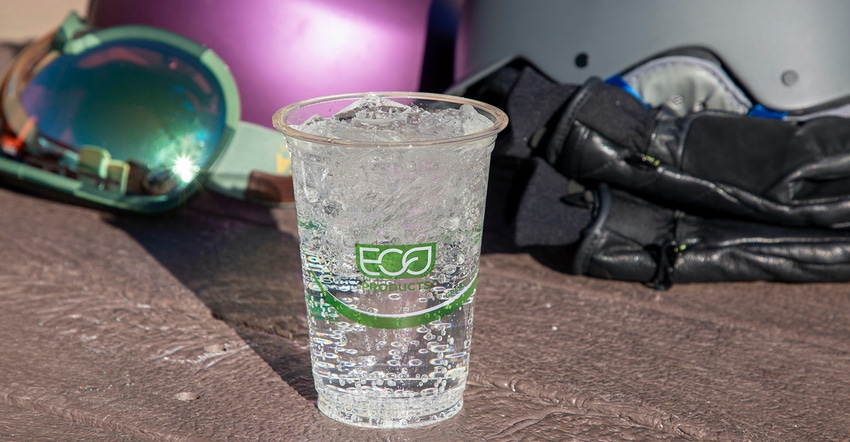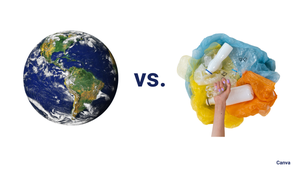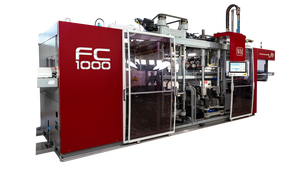PLA cups offer foodservice operators an alternative to single-use or recyclable plastics in venues ranging from restaurants to hospitals.

Hartsville, SC–based Novolex has launched a new US production line to manufacture industrially compostable beverage cups. Designed for cold drinks, the transparent cups are manufactured in Chattanooga, TN, using polylactic acid (PLA), a plant-based polymer. The new production line includes state-of-the-art thermoforming and extrusion equipment.
The cups will be available from Eco-Products, a Novolex brand and Certified B Corporation that specializes in foodservice packaging made from renewable and recycled resources. Distribution will be throughout North America and the Caribbean, and across Europe. Expansion into Australia and New Zealand is expected to start shortly.
The new Chattanooga line “is set to manufacture compostable cold-beverage cups that range in size from 9 to 24 oz. These plant-based plastic cups join Eco-Products’ existing line of PLA cold cups that come in 7-, 10-, and 32-oz sizes,” Nicole Tariku, Eco-Products Marketing Director, told PlasticsToday. Eco-Products and Novolex have a strong focus on developing products for industrial composting.
Many foodservice operators are interested in or already are buying PLA cups from Eco-Products. The company sells them to various segments of the foodservice market, including universities, stadiums, corporate campuses, hospitals and healthcare facilities, and restaurant chains.
The PLA cups offer dual sustainability benefits. First, the plastic from which they are made comes from starch-based plants such as corn, sugarcane, and wheat straw — all renewable resources. Second, the cups are Biodegradable Products Institute (BPI)–certified for compostability; compost made from the cups and other compostable materials can be used as soil amendment by gardeners, landscapers, and commercial growers to help new plants grow.
However, an industrial composting infrastructure is still emerging. “While an increasing number of governments, companies, and individuals are embracing commercial composting, the processing infrastructure required to divert food scraps and compostable packaging from landfills continues to lag behind demand,” Tariku said.
“That’s why Novolex participates in industry coalitions that advocate for and develop composting infrastructure by addressing the core issues facing commercial composters, such as contamination, economically viable end markets, and policy solutions,” she added. The organizations in which Novolex participates include the US Composting Council, Biodegradable Products Institute, Foodservice Packaging Institute, the Sustainable Packaging Coalition, and many state-based composting organizations.
The company also works with the Compost Manufacturing Alliance (CMA) to support development of field-testing protocols. “Our Eco-Products business was among the first supporters of CMA, working with composters to test and confirm that its products break down successfully at different types of commercial composting facilities,” Tariku said. In addition, Eco-Products has a relationship with the Iowa State University Polymer and Food Protection Consortium to address product functionality and food safety.
Significantly, Eco-Products is working “to promote zero waste and to make commercial composting more viable, successful, and the first choice for food waste and foodservice packaging,” Tariku explained. “If commercial composting is available at the stadiums, restaurants, or facilities where our cups are used, the cups can be placed in compost bins on-site by the user and will be picked up by the business or a residential waste hauler to take them to a local commercial composting site.”
About the Author(s)
You May Also Like




